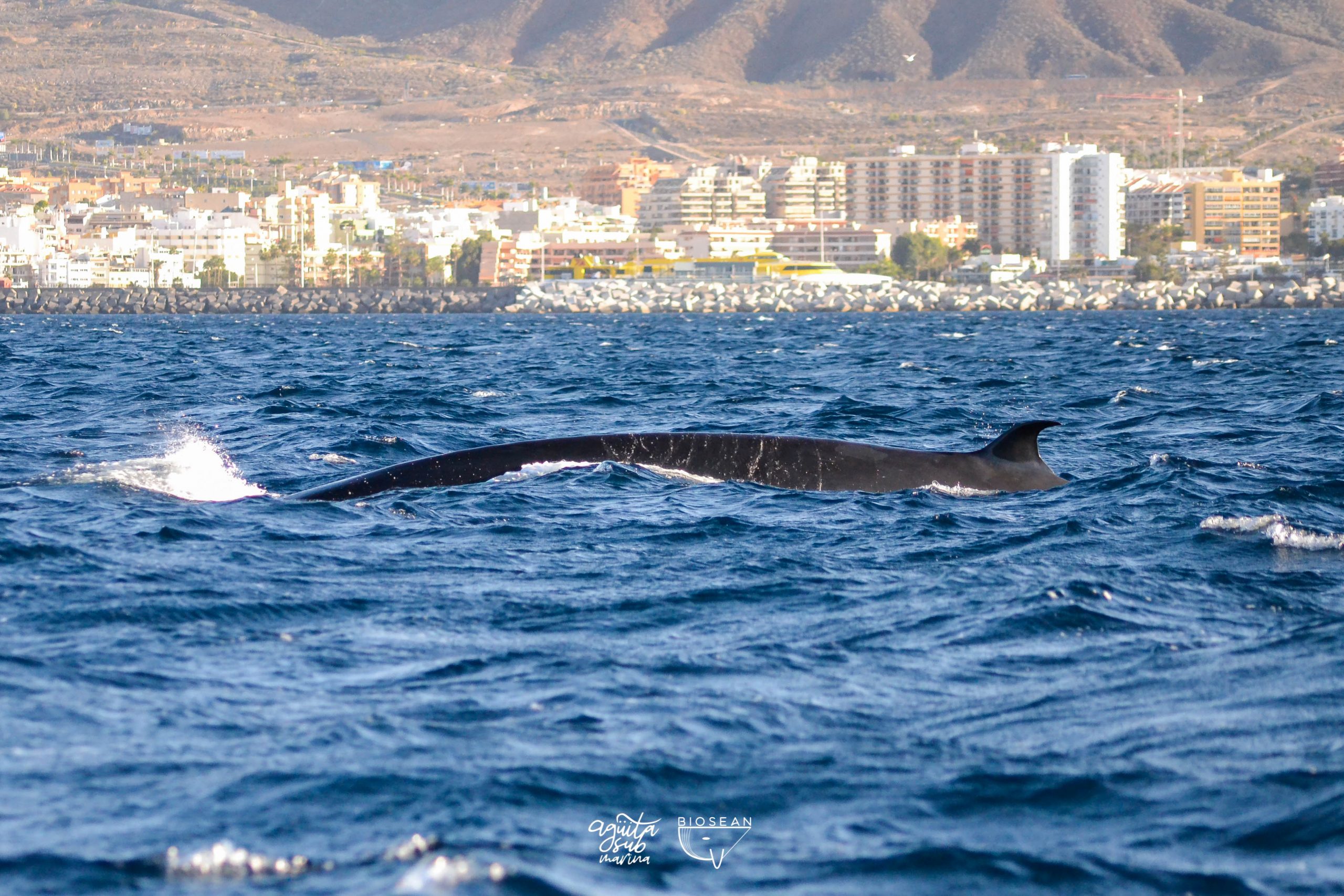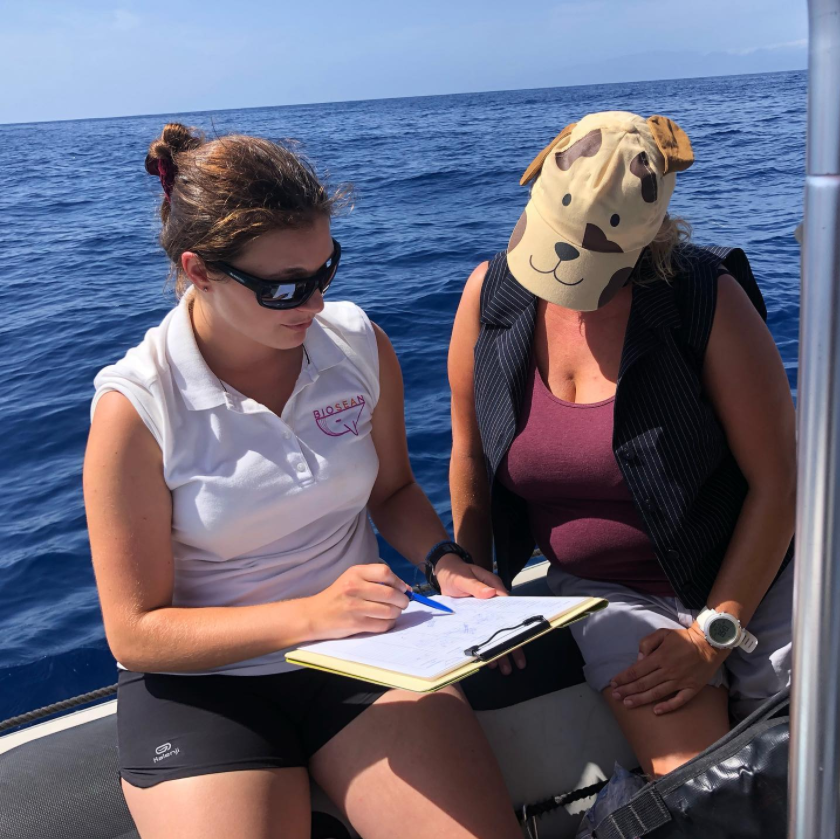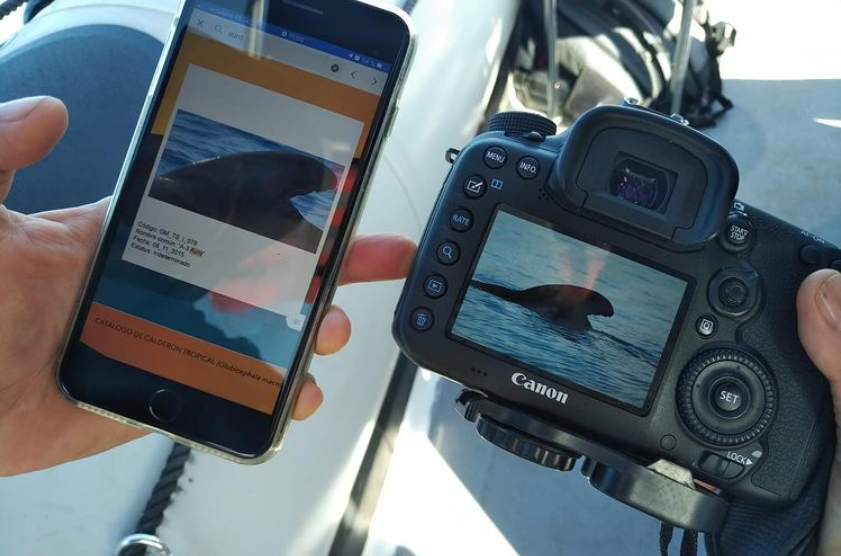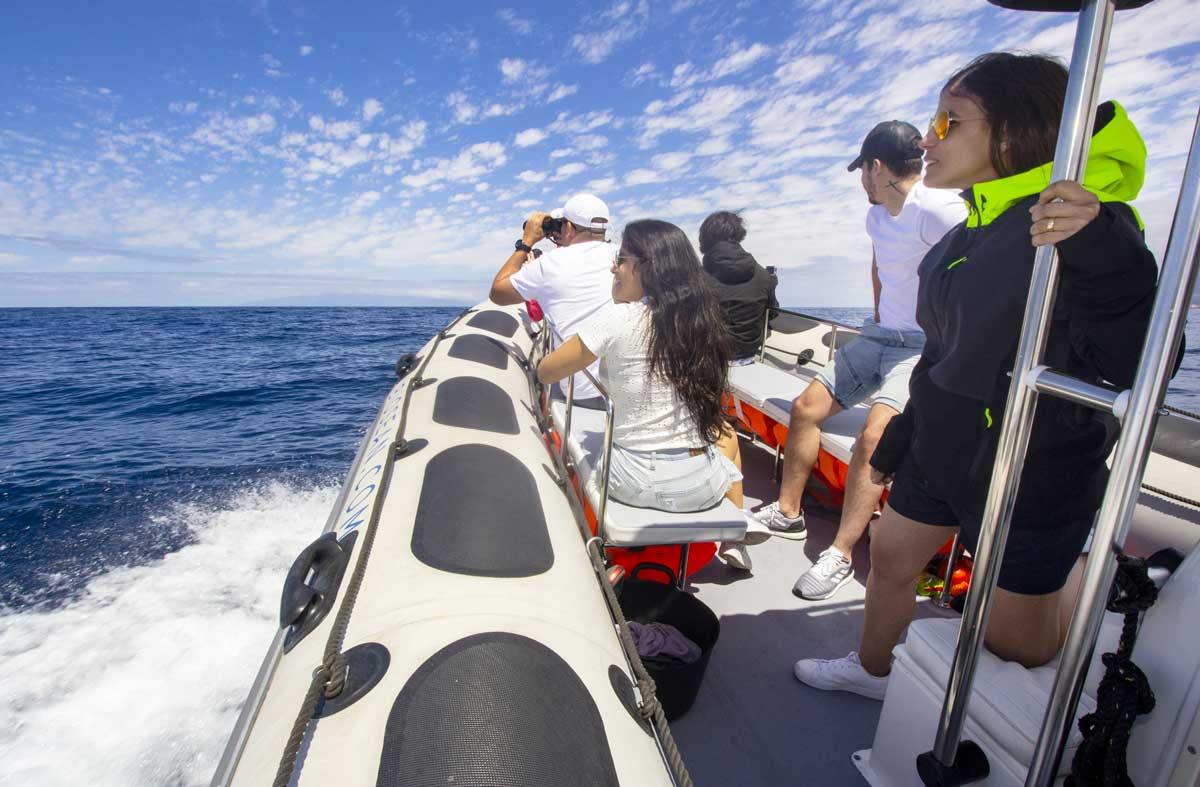Citizen science and whale watching
Enjoying the sighting of dolphins and whales in their wild habitat has become one of the main attractions for many travelers who choose the Canary Islands to live a unique experience in the middle of nature. This activity, which more and more tourists demand, requires extreme precautionary measures: a bad practice can cause collisions that can endanger the life of the animal and even the lives of the people on board the boat. However, if managed correctly, it can be an extraordinary tool to promote scientific research on marine mammals and environmental education. In addition, tourists who come to these activities can actively help to protect and learn about Tenerife’s whale populations.
Do you want to know how?

Whale watching tourism, an activity on the increase
The Canary Islands are a privileged place as far as the presence of cetaceans is concerned. The whale and dolphin watching activity on the island of Tenerife, one of the most developed in the tourism sector, has evolved a lot in recent years, adapting to the new social and economic reality of the islands. Adopting a model of sustainable work, committed to conservation and respect of the environment is essential to continue working in the protected natural environment found in the southwest of the island.

Among the lines of action being implemented on whale watching vessels are the reduction of the carbon footprint of the boats and compliance with the whale watching standards recommended by the WCA (World Cetacean Alliance). Thanks to the implementation of these measures, whale watching is a practice that is now celebrated by many environmental organizations as an opportunity for marine conservation and sustainable economic development.
Moreover, it is possible to go one step further. In BIOSEAN Whale Watching & Marine Science we know that whale watching tourism, aimed at the dissemination and conservation of species, can bring many benefits to science and the study of the marine environment. Therefore, we join the commitment by implementing a data collection system on board, using the boat and the whale watching tours as a platform of opportunity for research. In this way, we also contribute to a new emerging phenomenon increasingly useful for science and acclaimed by tourists and lovers of the marine environment: citizen science.
Network of Marine Observers in the Canary Islands

With the concept of “citizen science” as a context, the Network of Observers of the Marine Environment in the Canary Islands (RedPROMAR) was born, as a system for monitoring, surveillance of the marine environment and registration of information on all marine organisms in the Canary Islands, focusing on those marine species of interest, such as cetaceans, sharks and turtles, and those that are allochthonous or invasive. The Network has a website and a free app, both for Android and iOS.
Any ordinary citizen who wants to report an encounter with a marine species or a sighting can do so using this free tool and contribute significantly to research and knowledge of some ecosystem processes that are under study: the increase or decrease of species populations, the appearance of invasive alien species, algal blooms and so on.
Users can complete information in a form and upload photographs with locations of cetaceans, mammals and other marine species. All this information, constantly updated, allows us to diagnose the state of health of the Canarian marine ecosystem, as well as serving as a source and database for many studies and scientific research.
The observers that make up the RedPROMAR are ultimately the eyes of science, through which we capture the present and can understand the future of marine life in the Canary archipelago. Through citizen participation or “science”, the aim is to generate a three-way interaction between the scientific world, society and public administrations.
The right tool to contribute. Your grain of sand to science
In the context of whale watching, citizen science is an environmental education tool that involves the public in scientific activities such as the protection and conservation of the marine environment and the large mammals that inhabit it. It encourages the active contribution of citizens in the world of research and their involvement in the cetacean registry.
If you want to experience “citizen science” and get involved first hand in the marine world and its conservation, we propose several options. At BIOSEAN we offer people interested in the marine and cetacean world to go on our whale watching trips, promoting participation, environmental education, the study of marine biodiversity and the conservation of cetaceans and their habitat. You will help us to take data and make a sampling of the species we interact with in each sighting, the number of animals, the number of adults and calves present in each group, their behavior and photo-identification, among many other things.
All this information, collected in each of our tours, is necessary to carry out scientific research related to the marine environment and the species that inhabit it. In BIOSEAN we collaborate hand in hand with universities, institutions, NGO’s and students from all over the world in the elaboration of studies about the marine fauna that inhabits the Teno-Rasca Special Marine Conservation Area, achieving a better knowledge of the species and, at the same time, promoting the protection of this emblematic place. Help us to achieve it!


Data collection and photo-identification in BIOSEAN whale watching trips
If you want to participate actively and continuously, you can also do so by joining the Network of Observers of the Marine Environment in the Canary Islands (hyperlink: http://www.redpromar.com/). The registration system is simple:
– Download the free RedPROMAR app for Android or iOs or log in to the web.
– Register as a new user and create your profile.
– Access will be by username and/or password.
– From there, you will be able to register the information in the Network.
What are you waiting for? Become an active observer and collaborate in the monitoring and surveillance of the marine life of the archipelago! We offer you our trips aboard “El Calderón” so that you can start contributing your first records to the Network. Marine science is just a “click” away.

You can also keep up to date with what’s happening at sea by visiting our social networks: Instagram (@biosean_), Facebook, YouTube and LinkedIn.
See you soon in the big blue!